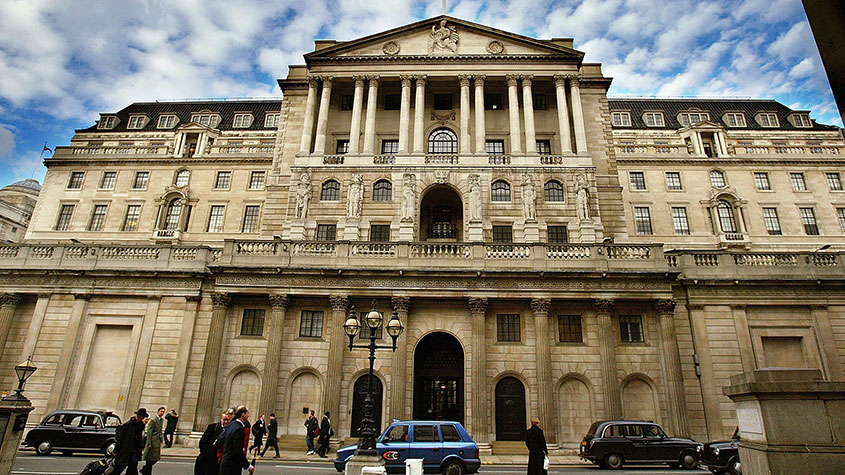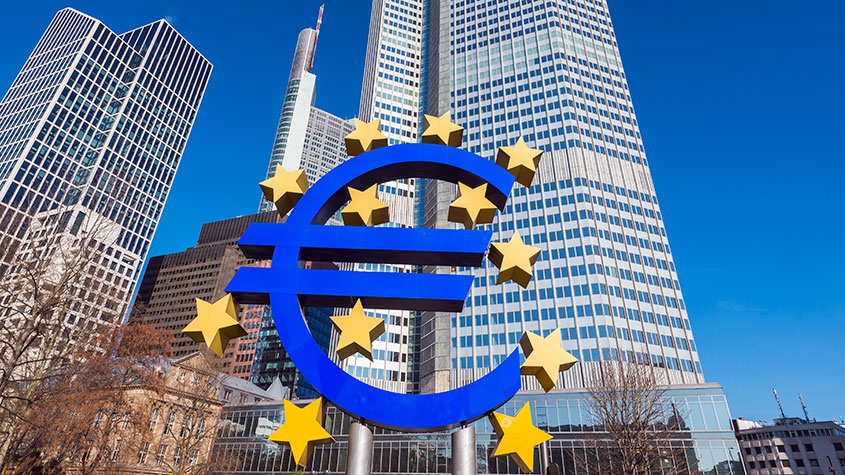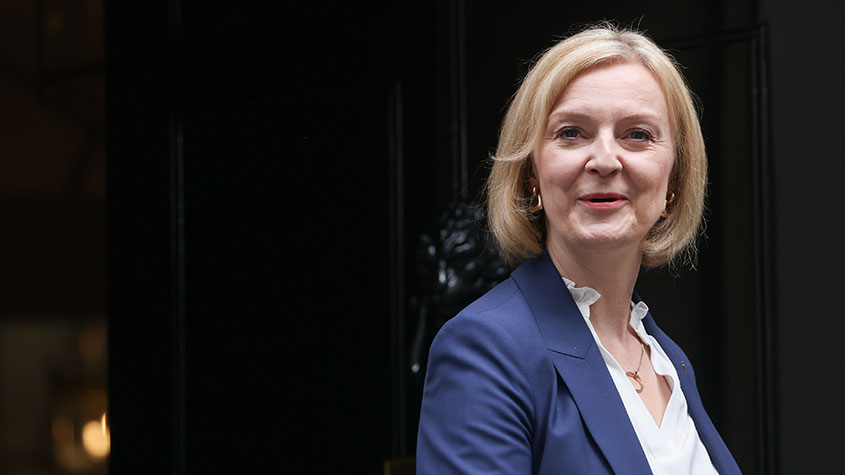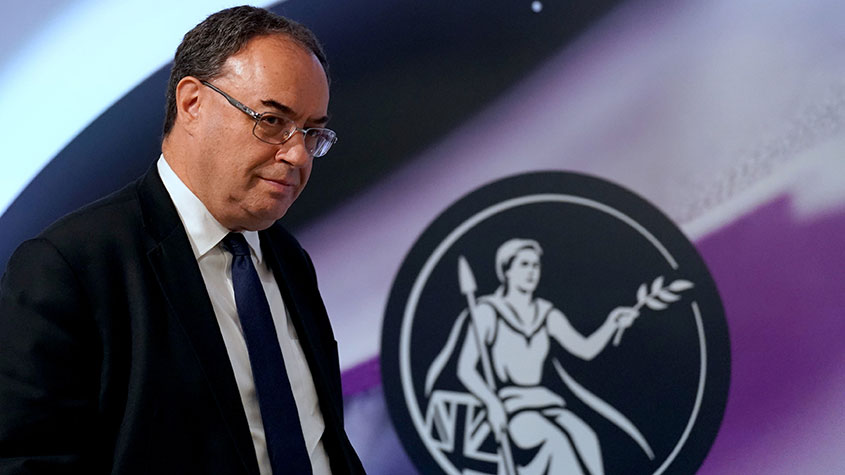Is there a better way to deal with bankrupt banks?
Many of Europe's banks are insolvent - or close to it. The likelihood is they will be bailed out. But is that the right thing to do? Matthew Partridge looks at three alternative solutions.

Get the latest financial news, insights and expert analysis from our award-winning MoneyWeek team, to help you understand what really matters when it comes to your finances.
You are now subscribed
Your newsletter sign-up was successful
Want to add more newsletters?

Twice daily
MoneyWeek
Get the latest financial news, insights and expert analysis from our award-winning MoneyWeek team, to help you understand what really matters when it comes to your finances.

Four times a week
Look After My Bills
Sign up to our free money-saving newsletter, filled with the latest news and expert advice to help you find the best tips and deals for managing your bills. Start saving today!
We all know about the financial crises across Europe. But an even bigger problem could be the state of Europe's banks.
The big headline-grabbing worry just now is, of course, Spain, where a real estate bust is causing many mortgages to go bad. It's little wonder that credit ratings agency Standard & Poor's has just cut the ratings of 11 Spanish banks.
But this is not just about Spain, it's a eurozone-wide problem. Thanks to loads of cheap money from the European Central Bank (ECB) and the meddling of politicians, banks across the European Union have taken on a lot of dodgy government debt.
MoneyWeek
Subscribe to MoneyWeek today and get your first six magazine issues absolutely FREE

Sign up to Money Morning
Don't miss the latest investment and personal finances news, market analysis, plus money-saving tips with our free twice-daily newsletter
Don't miss the latest investment and personal finances news, market analysis, plus money-saving tips with our free twice-daily newsletter
What can be done about this?
Solutions from 'bad-banks' to 'bail-ins' have been talked about. But when push comes to shove, it looks like governments will end up bailing their banks out. It doesn't matter whether this comes through guarantees, capital injections or asset purchases. Yet again, it will be the taxpayer who will end up footing the bill.
But is this really the right thing to do? Here are three alternatives to taxpayers having to pay up.
1. Let them go bust
Why not let the banks go under? In this case, they would be treated like any other business that made bad (or unlucky) decisions. It would also be a powerful warning to other banks that were tempted to make lazy decisions or to take on too much risk in other words, it solves the moral hazard' problem. This sink-or-swim approach would mean that there was no direct burden on the taxpayer.
However, there are several problems with this approach. Firstly, it would take time to sort out competing claims. This would create a huge amount of uncertainty. Indeed, savers may be unable to get at their money while firms may be left without access to essential funding such as overdrafts.
Letting the banks go bust would also lead to a forced selling of assets. This will push down the prices of bonds, reducing the amount that bondholders get back ,and will hit other holders of similar assets.
Asset firesales, and the absence of any state support could also lead investors to panic about the solvency of other banks. That would lead to contagion and the threat of a run on the wider financial system.
2. Bail-ins: an intriguing alternative
A less disruptive solution that still places less of a burden on taxpayers is the idea of a "bail-in". As with the first option, shareholders would be wiped out, while bondholders would also take losses (depending on their seniority ie, which order they come in the creditor queue). So as with option one, you largely avoid the moral hazard problem.
However, in this case there would be no need for the firm to be wound up. Instead debt would instantly convert into equity. In essence, this is an accelerated version of the bankruptcy process.
The main benefit is that this would reduce the amount of disruption. The solution could work as long as the reduction in the value of a bank's assets could be absorbed by a combination of its equity and debt. If the write-offs are bigger than this, then there could still be lots of problems.
If not, then this could be good for savers and others who rely on the bank for everyday transactions. The 'bailed-in' bank would be able to sell the 'toxic assets' at a pace that allowed it to maximize revenue, or even hold them to maturity. In turn this could also prevent the market from becoming too depressed.
However with this process you need to have a regulator or central bank, instead of the courts, attempting to rank claims. This could lead to mistakes. To avoid legal battles, the bank's creditors would either have to agree, or there would have to be laws already in place.
3. 'Good' and 'bad' banks
Another idea is to set up a 'bad bank'. This bank would buy toxic assets from banks at a price that kept them in business.
The idea here is that banks could then get on with their core business without having to worry about selling assets or going bust. While this process does involve bailing out the banks, taxpayer support could be minimized by either recouping any losses via a bank levy a specific tax on banks - or by forcing the banks to contribute capital to the fund that buys the toxic assets.
Supporters of this method argue that it minimizes disruption while reducing the overall cost to taxpayers. They also point out that prior to the 1929 Wall Street Crash, large US banks were expected to bail out smaller institutions when the latter got into trouble.
However, critics point out that forcing solvent banks to support insolvent ones allows the latter to free-ride' on the prudence of the former. It also creates a form of moral hazard, where the promise of rescue means that less prudent banks continue with their reckless behavior in the future.
And unfortunately, it also doesn't work if the entire industry is insolvent (as is likely to be the case in Spain). If this is the case, taxpayers are the ones who end up funding the bad bank' and shoulder the risk of losses.
What we would do
All three solutions are arguably better than straight bailouts, though the third option still involves some moral hazard. The experience of Iceland proves that the first option can work, with the state only compensating depositors.
We're not saying it would be easy, and Iceland was arguably driven to do it because it had no other option, but with some planning it should be possible to create a regime that would allow banks to go bust in the future without fears that civil society will collapse.
Sadly, this would also require government, regulators and central banks to resist special pleading. This looks unlikely. For example, the Dodd-Frank reforms passed two years ago require the Federal Reserve to consider a range of options. However, a simulation of the crisis, involving former Treasury Secretary Larry Summers resulted in him suggesting that another state bail-out might be needed (even though the legislation was intended to make this difficult).
So for all its tough talk, Madrid is likely to go down the Irish path, with support for failed banks essentially bankrupting the country.
Get the latest financial news, insights and expert analysis from our award-winning MoneyWeek team, to help you understand what really matters when it comes to your finances.

-
 Can mining stocks deliver golden gains?
Can mining stocks deliver golden gains?With gold and silver prices having outperformed the stock markets last year, mining stocks can be an effective, if volatile, means of gaining exposure
-
 8 ways the ‘sandwich generation’ can protect wealth
8 ways the ‘sandwich generation’ can protect wealthPeople squeezed between caring for ageing parents and adult children or younger grandchildren – known as the ‘sandwich generation’ – are at risk of neglecting their own financial planning. Here’s how to protect yourself and your loved ones’ wealth.
-
 How have central banks evolved in the last century – and are they still fit for purpose?
How have central banks evolved in the last century – and are they still fit for purpose?The rise to power and dominance of the central banks has been a key theme in MoneyWeek in its 25 years. Has their rule been benign?
-
 Do we need central banks, or is it time to privatise money?
Do we need central banks, or is it time to privatise money?Analysis Free banking is one alternative to central banks, but would switching to a radical new system be worth the risk?
-
 The French economy's Macron bubble is bursting
The French economy's Macron bubble is burstingCheap debt and a luxury boom have flattered the French economy. That streak of luck is running out.
-
 The Bank of England can’t afford to hike interest rates again
The Bank of England can’t afford to hike interest rates againWith inflation falling, the cost of borrowing rising and the economy heading into an election year, the Bank of England can’t afford to increase interest rates again.
-
 Bank of England raises interest rate by 0.5%
Bank of England raises interest rate by 0.5%News The Bank of England has raised interest rates once again, this time by 0.5%. This takes the bank’s base rate to 3.5%, the highest it’s been since 2008.
-
 Eurozone inflation hits 10.7% in October
Eurozone inflation hits 10.7% in OctoberNews Inflation across the eurozone hit 10.7% in October. What does it mean for your money?
-
 A forgotten lesson on the dangers of energy price caps
A forgotten lesson on the dangers of energy price capsAnalysis Liz Truss’s proposed energy price cap is an ambitious gamble. But a similar programme in Spain ended up being a fiasco, say Max King and Tom Murley. Here, they explain why Truss’s plan could be doomed to failure.
-
 Central banks can’t solve our current economic problems
Central banks can’t solve our current economic problemsAnalysis Traditionally, as we hit recessionary times, central banks have lowered interest rates. But that’s not an option this time. If anyone can help dull the economic pain, it’s not the Bank of England, it’s the government. John Stepek explains why.